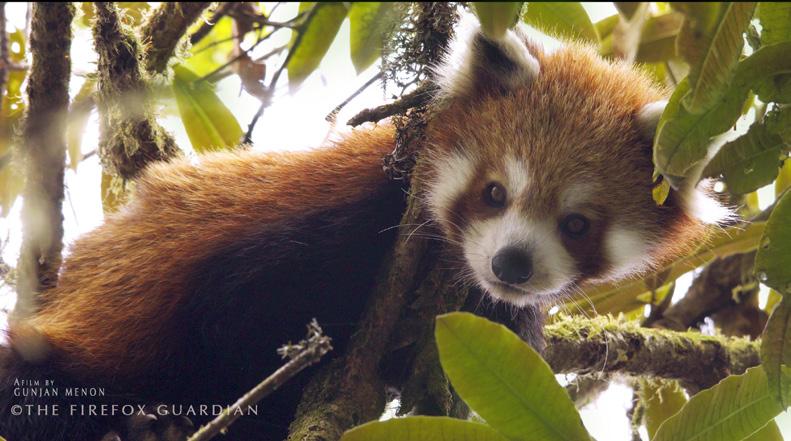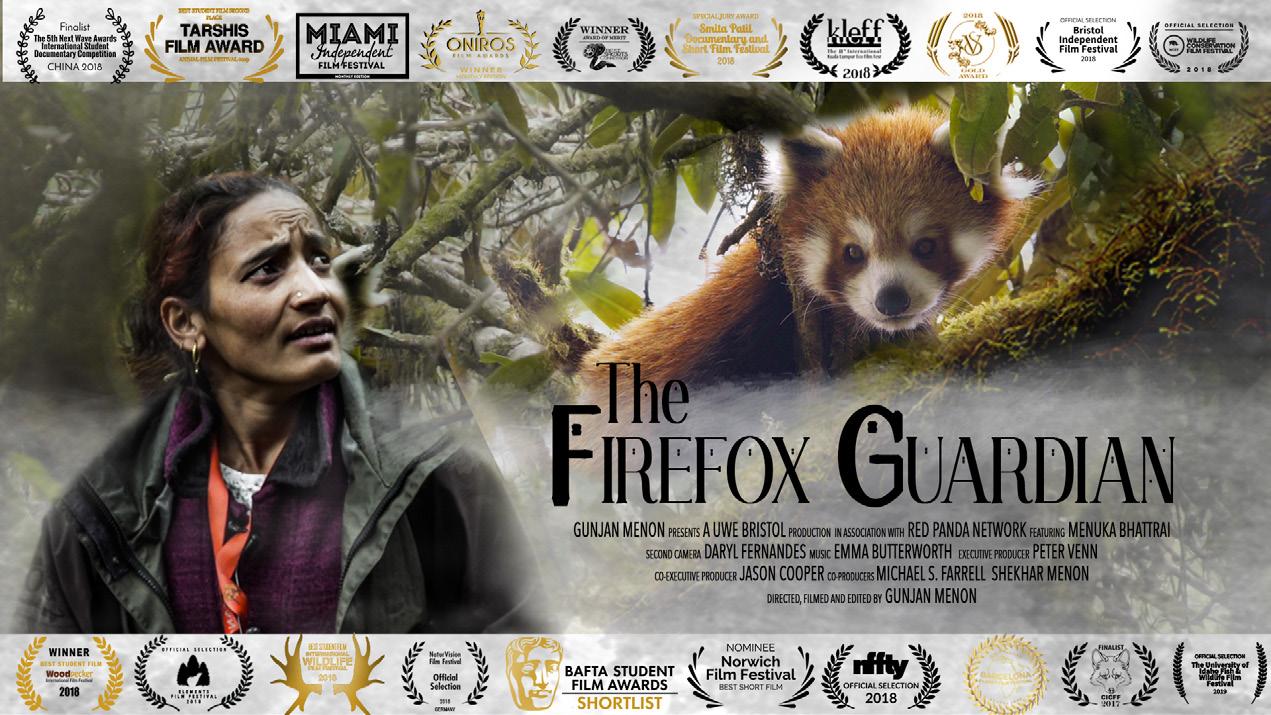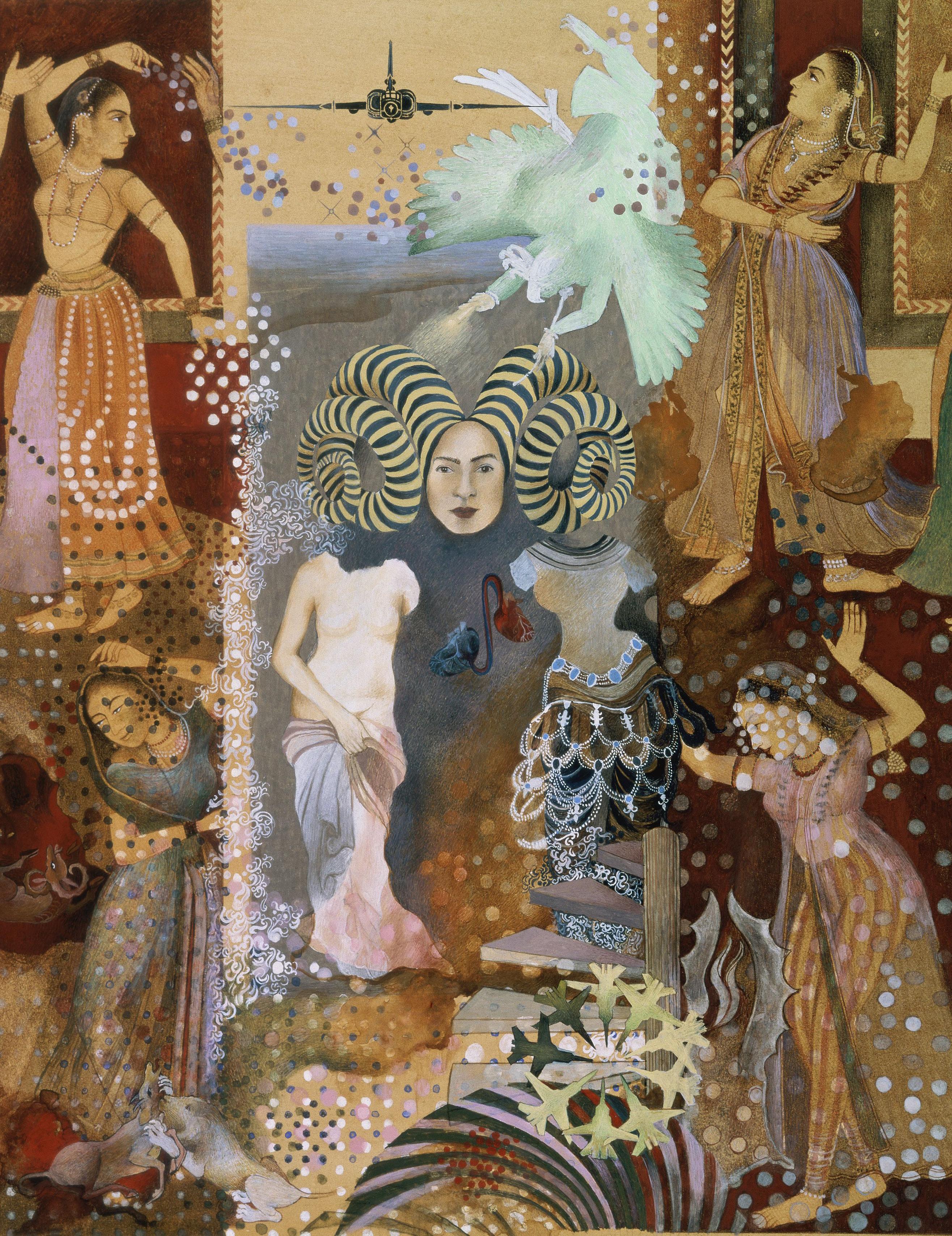
3 minute read
Living with Pandas
from SEEMA Magazine
by SEEMA


FILMMAKER GUNJAN MENON WANTS TO DRIVE WILDLIFE CONSERVATION BY GETTING THE WORLD ON BOARD
DEEPA PADMANABAN
Award-winning wildlife filmmaker Gunjan Menon knew she wanted to focus on conservation stories and not just film pretty pictures, when, as a teenager, she realized that the wildlife she grew up watching in documentaries were under threat.
As a child, she loved taking videos of animals with her father’s camera in her backyard in Delhi and remembers reading a book on rain forests her grandfather gave her.
“Once my brother and I even rescued a grounded fruit bat pup and saved his life,” she recalled.
Gunjan decided to merge her two interests, photography and wildlife. and did a master’s degree in wildlife filmmaking at the University of West of England, in Bristol, U.K.
Men, used to dominate wildlife filmmaking, which is physically challenging. It calls for navigating tough terrains and waiting patiently for hours to catch a glimpse of the animal. But women like Menon are showing they are equipped to overcome these obstacles.
For her master’s thesis, a 13-minute film, Menon trekked up to 12,000 feet in the Himalayas to shoot. The film depicted the work of a young Nepali woman, Menuka Bhattrai, in conserving the red panda, also known as firefox, a highly endangered species facing threats from poaching and fragmented habitats.
“People didn’t even know red pandas existed, so pushing for their conservation was going to be hard unless I told the story through the eyes of a character who my audience could connect with,” says Menon. “Once I met Menuka, I was extremely inspired by her and decided to make her the central character of my film.”
Bhattrai, the first woman forest guardian to join the Red Panda Network, an NGO working to conserve the animal, faced a lot of criticism for taking up a man’s job. Menon could relate to that.
Menon and Bhattrai trekked for 4-5 hours every day just to reach the panda’s habitat. Bad weather plagued them on most days, and leeches feasted on them at night.
“The terrain was unforgiving,” Menon says “But it was all worth it when I finally locked eyes with a panda cub.”
“The Firefox Guardian,” released in 2018, won more than 30 awards and nominations in 15 countries. But Menon says that, more than the awards, she is thrilled that it was instrumental in helping conserve red pandas and getting people to think about protecting wildlife.
“A six-year-old’s father from Oregon told me she wanted to be a conservationist like Menuka when she grows up,” says Menon. “Stories like these make me tear up because reassert the power of filmmaking, and assure me I’m on the right track.”
She feels most documentaries romanticize the truth, shying away from the crises at hand – the planet’s sixth mass extinction, and climate change.
“I want to tell truthful stories, films that bring hope, cinema that can inspire,” Menon says. “That’s perhaps the main difference between simply taking pretty pictures of wildlife and being able to tell conservation stories.”
These stories need not always be gloomy, Menon says. “I experiment with cross-genres so that these films can reach the masses. We can’t keep preaching to the choir if we really want to change the world with our stories.”
In spite of the many challenges of the job – no set schedule, no steady income, no job security – Menon believes filmmaking can really bring behavioral change among people, push policies and inspire a call to action.
She has recently completed a web series about how local people co-exist with wild animals in the Kumbhalgarh Wildlife Sanctuary in Rajasthan, She is now working on a film about a species declared extinct in the wild.
With her husband, Menon recently also started “Beyond Premieres,” an organization aiming to help bridge the gap between wildlife filmmakers and grassroots NGOs in bringing conservation issues to the fore.
“We also wish to train emerging filmmakers on how to create an impact with their work so our tribe can help solve conservation issues, one little step at a time,” she says.
Menon hopes more women will enter her field.
“I want to tell all aspiring young girls, don’t ever think you can’t do this,” she says. And so she is conducting a free virtual workshop on wildlife filmmaking for teenage girls on March 6.










